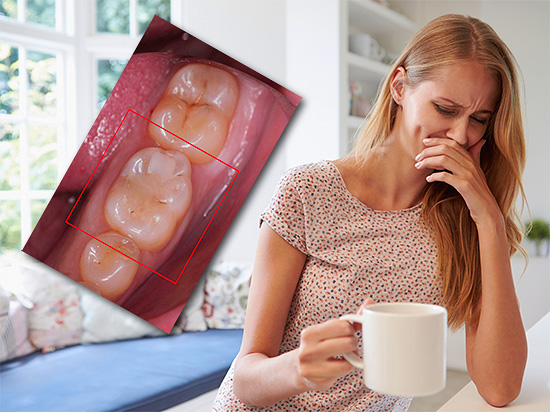
Toothache during pregnancy in many cases is a consequence of the widespread misconception that a pregnant woman should not go to the dentist. The popular opinion on this matter is as follows: the treatment at the dentist is dangerous for the fetus, and the expectant mother must certainly endure the birth, and only then do something to treat the teeth.
It is difficult to say how many healthy teeth were killed due to such a misconception. After all, it is precisely the fear of going to the dentist that is the most serious enemy, both for the pregnant woman herself and for her fetus, which the mother’s well-being directly affects. In fact, the first thing to do if a toothache occurs during pregnancy is to make an appointment with a good dentist.
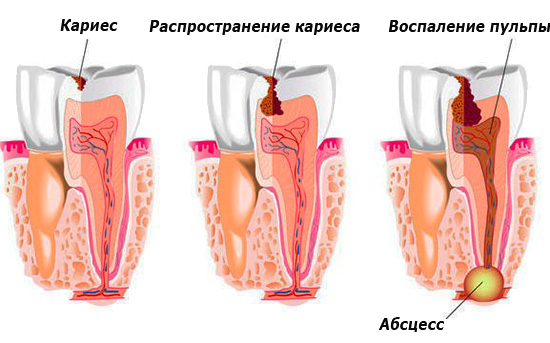
Remember: only a specialist can correctly assess the situation and decide what needs to be done in each particular case (and whether something needs to be done at all). After all, the situations are very different, and sometimes a really immediate treatment is required. When a tooth hurts during pregnancy and the expectant mother, having no relevant experience and understanding, independently decides to let the problem go by itself, this often leads to very serious consequences: from fluxes to life-threatening phlegmon and sepsis.
Until the 35-36th week of pregnancy, teeth can be treated completely, and today dentists have an effective and safe means in their arsenal to anesthetize a tooth during manipulations without harming the fetus. If it’s just about treating caries, without damaging the pulp inside the tooth, without purulent inflammation of the gums and other complications, then the corresponding dental intervention will be minimal at all, and you certainly shouldn’t be afraid of it.
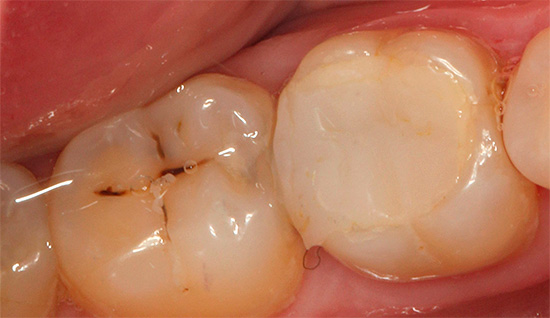
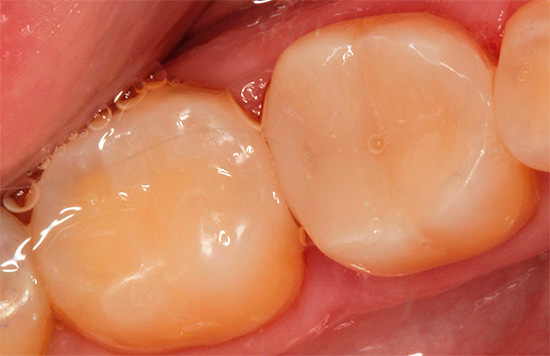
Only in rare cases, at the very last stages of pregnancy, or when a woman is on preservation, the dentist can not conduct treatment, but prescribe only painkillers for a short time. But then again, even if by telephone, but it is the doctor who should do this: you should not self-medicate with severe toothaches, hoping to endure until the end of pregnancy.
On a note
A difficultly erupted wisdom tooth during pregnancy can cause a lot of trouble: if the inflammatory process and suppuration began under the gum hood, then in no case should you wait for everything to resolve itself. Significantly safer for your health and the developing fetus will make an appointment with the doctor.
Unfortunately, practice shows that if pregnant women have toothache, in most cases they still refuse to visit the dentist, especially in the first weeks of pregnancy. In such cases, the teeth often suffer from caries in the early and middle stages, which can be cured without any risk to the fetus, keeping the tooth alive. But by birth, this caries often manages to develop into pulpitis, when it will not be possible to keep the tooth alive. In addition, pulpitis in the absence of timely treatment can develop into more serious complications - for example, periodontitis or periostitis.
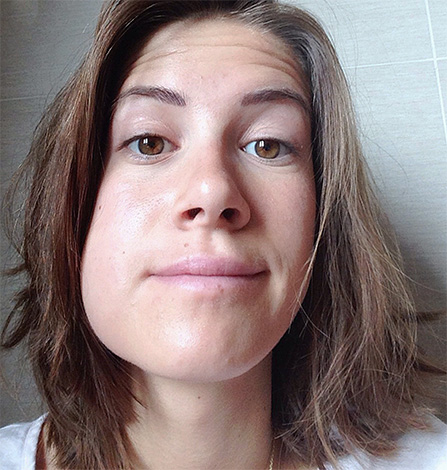
Feedback
“I had a terrible situation with my first child. The tooth started to hurt quite early, but not very much, so I decided not to go to the dentist with a stomach. Tolerated at first, thought it would pass. It did not pass. Already somewhere in the 22-23 week I sometimes had to drink aspirin, but it was still bearable.
But in the later stages, such pain began that it felt as if a bolt was simply screwed into a tooth. A nightmare, I wanted to climb the walls, I did not know what to do. 38 weeks, I’m waiting from day to day for labor, the bag is collected in the hospital, and here it is.Then the pus dripped and smashed his cheek. And I understand that I can’t go to the dentist - what if it all starts there. And to go to the maternity hospital in this state is scary.
In short, my girlfriend persuaded me, she took me to a good dentist. He, of course, looked at me as if she were crazy. He burst out with something, the abscess opened, it was just horror, how much flowed from there, but it didn’t hurt. He put some medicine, said that if the contractions do not start, then you need to come the next day. So a week and went to him, with a girlfriend or husband.
When I gave birth, there was already no toothache or inflammation. Now I only understand that if I went with the first shootings, I would put a seal and there would be no problem. ”
Victoria, Kiev
So, if your teeth hurt during pregnancy, the first thing to do is call a doctor. And only if he advises to relieve toothache at home, then apply the appropriate "improvised" methods.
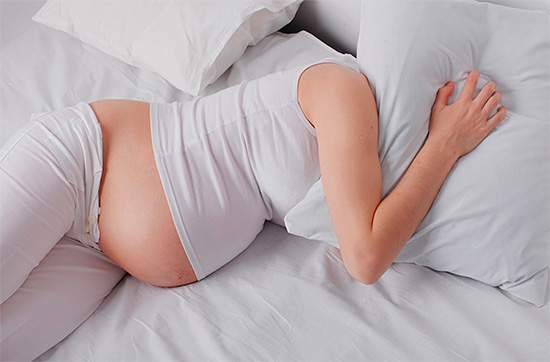
For such home anesthesia, several types of drugs are usually used ...
Warm rinses are an easy and safe way to relieve toothache.
To relieve acute toothache, doctors often recommend warm rinses. During pregnancy, this method is good primarily because it is absolutely safe, and gives, although not a complete, but quite pronounced effect.
Warm rinses are used when for some reason it is not possible to provide adequate treatment for a day or more (for example, there is simply no way to see a doctor on holidays). Rinses are especially effective for gum disease, purulent pulpitis and periodontitis.
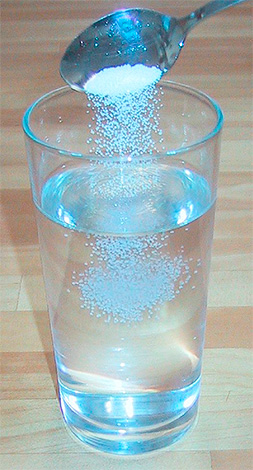
To relieve toothache, rinse your mouth with a liquid with a temperature so that it feels warm (on the verge of hot), but neither your gums, tongue, nor cheek are burned from the inside. You can use for this simple water, water with salt or soda (per liter of water a teaspoon of salt), or black tea.
The more rinses are made and the longer each "session" lasts, the better the effect is manifested. For example, you can use it to rinse a glass of liquid every hour during the day. In no case should you warm the place of inflammation from the outside - with a heating pad or, as some do, by pressing your cheek against the radiator.
With severe toothache, warm rinses will provide only a partial analgesic effect and will help for a short time. At the same time, this method has no side effects, and it can be used safely during pregnancy at any time.
Pregnant-approved pharmaceutical analgesics
Painkillers are much more effective remedies for toothache than rinses and various folk recipes. During pregnancy, they should be used especially carefully (after consulting a doctor), but it is they that can completely relieve sometimes even severe toothache.
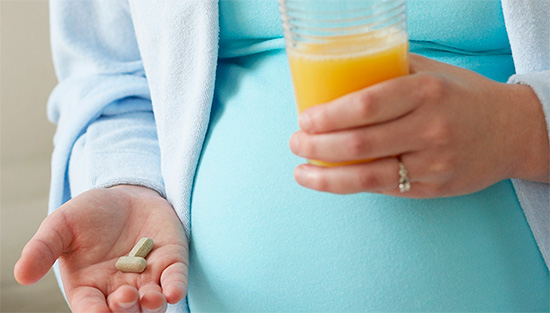
Of these funds that are approved for use during pregnancy, you can drink, for example, the following:
- Paracetamol - this drug is considered the safest during pregnancy. Although paracetamol does not belong to strong analgesics, it helps quite well, even if the teeth hurt very badly.

- Aspirin, which is taken only as directed by a doctor. With certain reservations, aspirin is allowed in the second trimester of pregnancy. It does not allow to completely anesthetize a tooth, but reduces pain to a tolerable limit.

- Analgin - in its properties is largely similar to Aspirin, but has a more pronounced analgesic effect. Nevertheless, Analgin has a number of serious side effects, because of which the drug is prohibited in many countries of the world (but for some reason not in Russia).

- Nurofen - in exceptional cases, his doctor may prescribe to reduce toothache in the first or second trimesters of pregnancy.
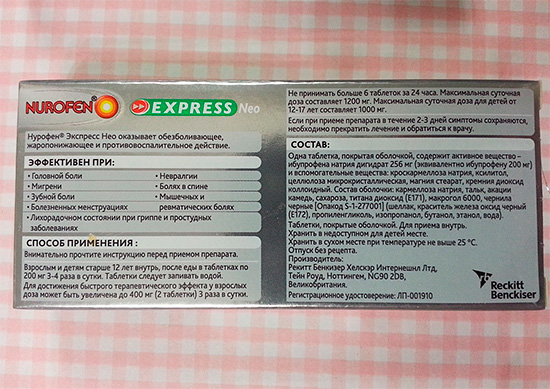
But again, the reception of these funds during pregnancy must be agreed with the doctor. But powerful drugs, such as Ketorol, Ketanov, Ketorolac or Dolak, are strictly forbidden to take during pregnancy.
Acute toothache during pregnancy can be relieved with novocaine - the solution is simply dripped onto the affected area of the gum next to the tooth, into the carious cavity, or a cotton swab is moistened, which is then applied to the tooth. To use such a tool, you need a doctor’s instructions, but in general it can be considered quite safe. True, novocaine is far from effective in all cases.
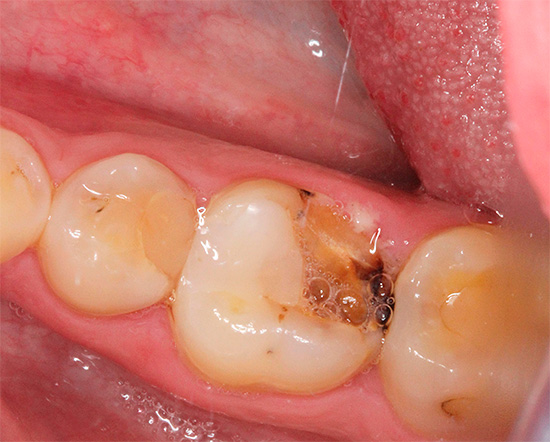
Feedback
“I myself, the first three weeks, when pain appeared in my lower tooth, tried to remove it with Nimesil. It’s a good pain medication, even children are prescribed it, so I wasn’t even afraid to use it. But it turned out that you can’t drink it during pregnancy!
As I found out about this, she spat on everything and went to the doctor. And what do you think? Even the nerve did not have to be removed. Put a seal and all. It was a little painful, the doctor did not want to inject the pain medication, and I was afraid. But a minute to tolerate - it's not forty weeks to walk with a toothache. And so for half an hour in an armchair and that’s all, there’s no toothache. ”
Vika, Moscow
Folk painkillers and anti-inflammatory drugs
Specifically, there are no painkillers among folk recipes - all of them are designed to only slightly relieve inflammation, as a result of which the pain is slightly reduced.
Note the most common and at the same time quite safe folk remedies for toothache, the effectiveness of which has been tested in practice and which can be used during pregnancy:
- Fir and sea-buckthorn oils - they moisten a cotton swab and apply it to a diseased tooth;

- A salt solution that is used in the form of heat to rinse the mouth;
- Decoctions of anti-inflammatory drugs: sage, chamomile, leaves of coltsfoot, oak bark, yarrow grass, string and peppermint.

Rinsing with such means is necessary in the same way as it was written above about warm rinsing, and with the same frequency. However, they will be useless with medium or deep caries, that is, in the absence of soft tissue inflammation (in this case, you can use clean water to wash the stimulus out of the carious cavity), or if a teething wisdom tooth hurts without gum disease.
Feedback
“It was very scary to call the dentist and go for treatment in the third trimester. She rinsed her mouth with a decoction of chamomile, applied a mummy, but nothing helped. The pain hardly subsided. Then she decided, called and signed up for the clinic.
I arrived the next day, the doctor carefully asked everything - what are the periods of pregnancy, what are other diseases, were there allergies. He injected quite a bit, said that he would need to be patient. I suffered, but nothing particularly hurt. Apparently, anesthesia worked well.
He fiddled for a long time, removed the nerve, put a temporary seal. After that, the tooth ached a little, but not much. A day later, they were completely filled, already without anesthesia and completely without pain. I was more afraid, actually. "
Tanya, Orenburg
What and why should not be used during pregnancy
In addition to the above-mentioned powerful medications that are prohibited during pregnancy (Ketorol, Ketanov, etc.), tooth pain can not be eliminated by the following means:
- Honey, which only contributes to the development of caries, representing a nutrient substrate for bacteria.
- Warming up the inflamed area outside - this will only lead to even greater progression of the inflammation.
- By applying Aspirin tablets directly to the gums. Because of this, a so-called aspirin burn may develop.
- Intake of alcohol. Here, perhaps, everything is clear and without comment.
In addition, it is absolutely useless to apply fat to the gums, tie garlic on your wrist, read conspiracies and prayers from toothache - oddly enough, but in rural areas such techniques are still in use.
But the main thing that should not be done pregnant if she has a bad toothache is to delay a visit to the doctor. Moreover, it is the dentist who will help not only relieve the toothache of the expectant mother, but also, in fact, protect the fetus from the negative impact of possible complications that often arise in the absence of timely treatment of the diseased tooth.
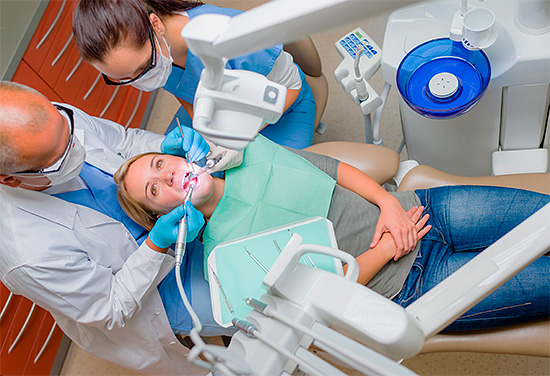
If a pregnant woman has a toothache: what will the doctor do
It is important to understand that pregnant women have toothaches for the same reasons as all other people: caries and the destruction of hard tooth tissues associated with it, inflammation of the pulp, hard to erupt wisdom tooth, etc.
The only difference is that during pregnancy, teeth can decay faster than in other periods of life - due to a lack of mineral components in saliva, which are spent on the formation of the skeleton of the unborn baby. And this means that instead of avoiding a visit to the dentist in every possible way, on the contrary, one should strive to get an appointment so that he can detect damages in time and eliminate them even before the teeth become seriously ill.
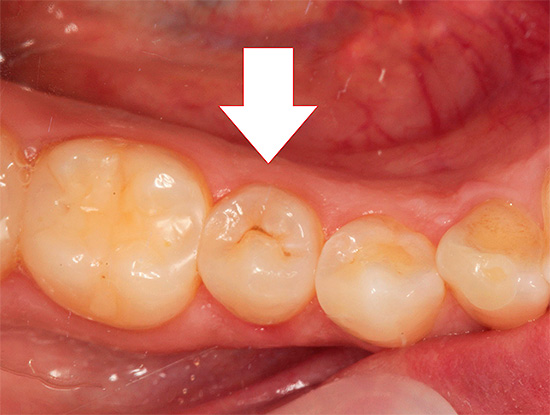
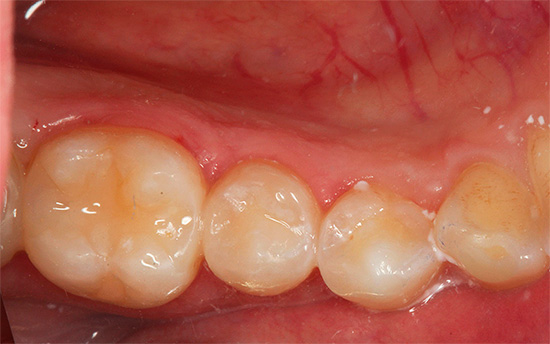
Already in the dental office, if necessary, the doctor will conduct anesthesia with such analgesics that will be safe for the pregnant woman and her fetus. After that, any manipulations, from installing a seal to removing a nerve, will no longer cause pain.
But the main thing: the doctor will not only calm the toothache, but also protect against the development of serious complications, which are much more dangerous than tooth decay. It is much easier and safer during pregnancy to fill in time or, in extreme cases, remove a nerve from a tooth than to treat an abscess or odontogenic osteomyelitis of the jaw subsequently.
Therefore, if a tooth hurts, feel free to call the dentist, and regardless of the duration of pregnancy. Your inaction in such a situation is much more dangerous than even an unpleasant, but timely treatment.
In what periods of pregnancy, it is strictly forbidden to treat teeth, and in which - is it possible?
Useful video about the danger of caries during pregnancy

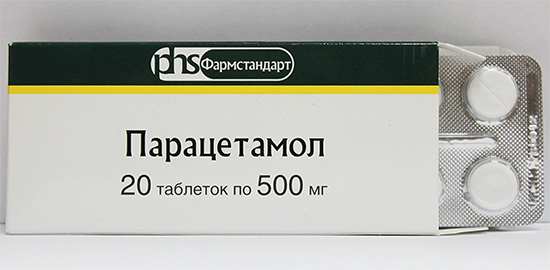
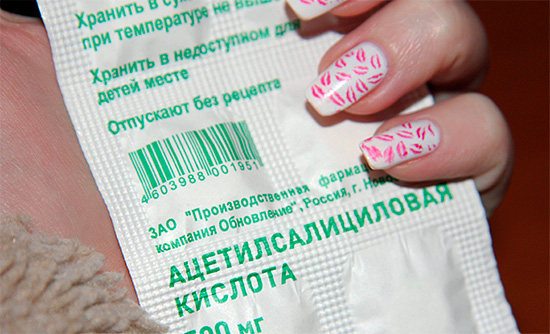
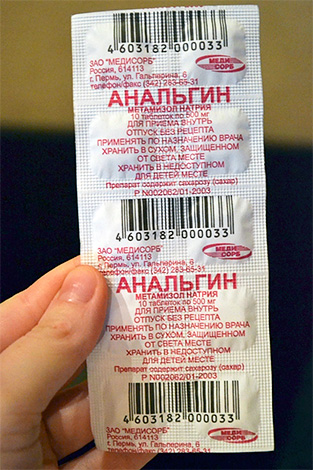
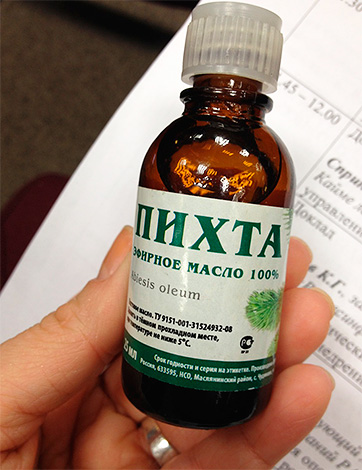
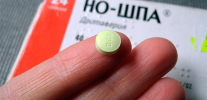
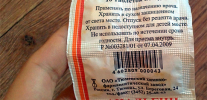
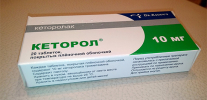
I am pregnant, 2 weeks. My tooth hurts, so I take ketotifen every day. Will this affect the development of the fetus?
Hello Gauhar! In the first trimester, taking Ketotifen is possible only if the potential benefit to the mother outweighs the possible risk to the fetus. But speaking generally, prolonged regular administration of analgesics is not recommended in the first trimester of pregnancy, since taking drugs can provoke a miscarriage during this period. I recommend visiting a dentist to find out the causes of pain and adequate treatment. You can’t live on analgesics for 9 months anyway, so you need to solve the problem, and as soon as possible.
I have 39 weeks of pregnancy.Teeth under the crown are very sore, the crown is metal. What should I do?
Hello. In case of toothache during pregnancy, you should immediately consult a dentist (plus it will not hurt to inform your obstetrician gynecologist). And do not hesitate to visit a dentist, hoping to see a doctor after childbirth - during this time, an infection in the tooth can lead to serious complications, and the situation as a whole can be much worse.